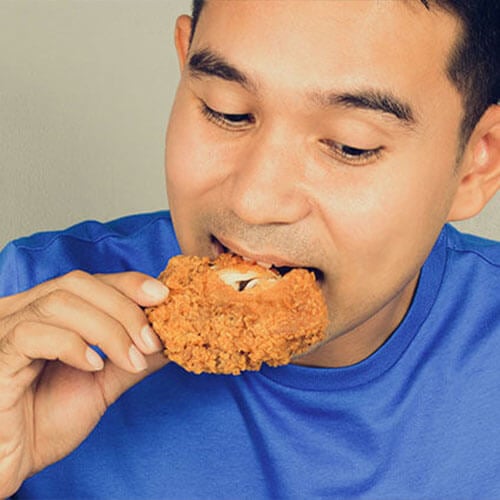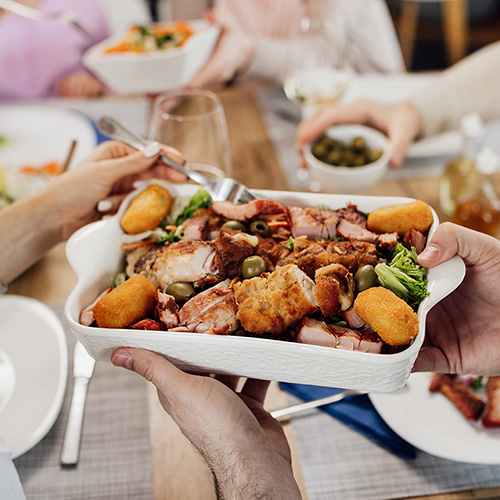Hypertension, or “high blood” as it is more commonly known, is one of the most common health issues that makes adults feel more conscious and worried as they age. Data from the World Health Organization (WHO) reveals that around 1.28 billion adults, mostly from low- and middle-income countries, struggle with this issue worldwide.
High blood pressure has often been listed as a premature cause of death, and even more worrying, it’s estimated that at least 46% of adults with hypertension don’t even know that they have this health issue. High blood pressure often goes unnoticed because it might not have any symptoms or have only mild and occasional symptoms. Most people become aware of it only when they have a routine BP measurement taken, for example at an annual physical check-up, and the reading turns out to be elevated.
Your risk for developing hypertension increases as you get older, but there’s good news! Your blood pressure levels are influenced by several lifestyle factors: the duration and quality of your sleep, how much regular exercise you get, how you cope with stress, and the foods you eat. This means that you can take several steps to decrease your chance of getting high blood, or improve its control if you have already been diagnosed with this condition.
Speaking of food and blood pressure, there are two factors to consider in your diet: getting the nutrients you need so that your heart and blood vessels function better and avoiding certain dietary elements that can negatively impact your blood pressure. This quick read will give you an idea of foods to limit in order to improve your blood pressure levels.
Red Meat
Red meat such as beef and pork are staples in a lot of people’s diets, but these may contribute to high blood pressure. Some studies revealed a direct link between consumption of red meat and blood pressure levels. This may be due to the fact that metabolizing red meats can release certain compounds that can make blood pressure levels rise.
Salty Food
Sodium, found in “sodium chloride” and commonly known as salt, is necessary for our cells to function properly. But if you have too much salt in your diet, this can cause your blood pressure levels to increase as found in multiple studies. Excessive salt intake can cause your body to retain more water and the extra volume of water puts more pressure on your blood vessel walls and raises your BP levels.
Examples of high-sodium food include canned soups, processed meats like bacon, ham, and sausage, deli meats, snacks like chips, pretzels, and popcorn, and even condiments like ketchup, soy sauce, and selected salad dressings.
Sugary Food
Sugar is often linked to diabetes, but did you know that it can also negatively impact your blood pressure levels? This is because sugar can limit the production of nitric oxide (NO). NO helps blood vessels to dilate so they’re “relaxed” and wide enough to allow blood to flow easily throughout your body.
Moreover, excessive sugar consumption can lead to weight gain and cause people to be overweight or even obese. Because of the extra weight, the heart has to exert more effort in pumping blood throughout the body, and raise pressure within the arteries. Eventually, the arteries in question “resist” blood flow and raise blood pressure levels.
When It Comes to BP Levels, Talk to a Doctor
Because high blood pressure is a complex health issue that can be affected by multiple factors, it would be wise to talk to a doctor or health professional about your condition. They may suggest that you undergo additional diagnostic procedures like lab tests, electrocardiograms, or echocardiograms to evaluate other factors related to the health of your heart & blood vessels, as well as discuss the potential causes for your current condition.
Meanwhile, it would be a good idea to have your blood pressure levels checked regularly to make sure that your BP is still within normal. However, if you’re unwell and feel that you may already be experiencing symptoms of high blood pressure levels, seek medical attention immediately.
References:
https://www.healthline.com/health/high-blood-pressure-hypertension/foods-to-avoid#foods-to-avoid
https://www.healthline.com/nutrition/how-to-increase-nitric-oxide
https://www.medicalnewstoday.com/articles/foods-to-avoid-with-high-blood-pressure
https://www.who.int/news-room/fact-sheets/detail/hypertension
https://www.chp.gov.hk/en/features/28272.html
https://journals.plos.org/plosone/article?id=10.1371/journal.pone.0233777
https://www.ncbi.nlm.nih.gov/pmc/articles/PMC2658466/
https://my.clevelandclinic.org/health/articles/4249-hypertension-and-nutrition
https://www.diabetes.co.uk/in-depth/high-blood-pressure-excess-sugar-diet-may-culprit/
https://www.verywellhealth.com/sugar-and-hypertension-5117022
Sleep and Hypertension (nih.gov)
Can a lack of sleep cause high blood pressure? – Mayo Clinic
Exercise: A drug-free approach to lowering high blood pressure – Mayo Clinic
Stress and high blood pressure: What’s the connection? – Mayo Clinic
Managing Stress to Control High Blood Pressure | American Heart Association








